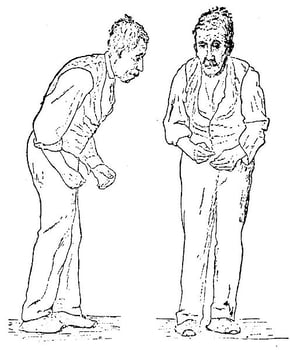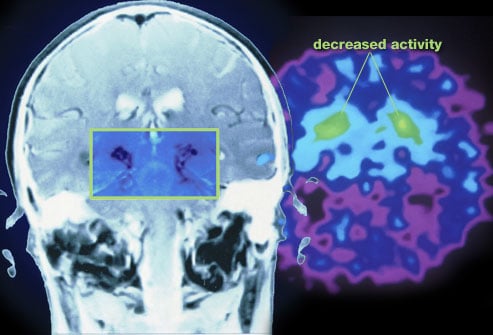Nearly one million American’s live with Parkinson’s Disease (PD). The direct and indirect costs of Parkinson’s, including treatment, social security payments and lost income, total nearly $25 billion per year in the United States. Medications alone average $2,500 per year per patient. Currently, there is no definitive test for PD and, while there are treatments, there is no cure. With the help of over $7.7 million in NIH funding, the Director of the Morris K. Udall Parkinson’s Disease Research Center at Johns Hopkins, Ted Dawson M.D., Ph.D. hopes to change that.
Read MoreTags: Johns Hopkins University, Baltimore, new research grant, Parkinson's Disease, BioResearch Product Faire, nih research funding, university research funding, JHU
Parkinson’s is a degenerative condition that affects over one million Americans - even greater than the number of those suffering from multiple sclerosis, muscular dystrophy and Lou Gehrig's disease combined. There is no cure, but this month researchers at the University of Alabama at Birmingham made two important breakthroughs for treating the disease. One group of researchers has discovered the cause of the negative side-effects of L-DOPA and a potential way to counter-act it. Another group of researchers have “discovered an interaction in neurons that contributes to Parkinson’s Disease and they have shown that drugs now under development may block the process.”

(Image of the University of Alabama, Birmingham courtesy of Jaymay via Wikimedia Commons)
Read MoreTags: Parkinson's Disease Research, University of Alabama Birmingham, University of Alabama at Birmingham, Parkinson's Disease, biomedical researh, Dr. Volpicelli-Daley, Dr. Standaert

(1886 Sketch of Person with Parkinson's by Sir William Richard Gowers Courtesy of Wikimedia Commons)
Researchers at the University of Alabama, Birmingham have discovered a potential new approach to reducing the damage done by Parkinson's disease. They found that suppressing a key cell-signaling pathway in the brain lessened the destructive inflammation and nerve degradation in the area of the brain affected by Parkinson’s. In the study, rats were used to model the disease by inducing an overexpression of a-synuclein, a protein that is abundant in the human brain. The accumulation of α-synuclein is a core feature of Parkinson’s disease. This accumulation leads to the activation of the brain's immune cells and the production of inflammatory signaling chemicals, which leads to neurodegradation. The rats that were then given a JAK/STAT pathway inhibitors (known as Jakinibs) did not have the immune response, the inflammatory activation, or the neurodegeneration that those that did not receive the inhibitor experienced.
Read MoreTags: Parkinson's Disease Research, Alabama, University of Alabama, University of Alabama Birmingham, UAlab, Birmingham, AL, University of Alabama at Birmingham, 2016, Parkinson's Disease
A new strategy for combating the neurologically destructive effects of Parkinson's Disease has been developed jointly by researchers at the University of Pittsburgh and the University of Pittsburgh School of Medicine.
Read MoreTags: University of Pittsburgh, Parkinson's Disease Research, gene therapy, UPITT, PA, Pittsburgh, Parkinson's Disease
For the 60 thousand Americans diagnosed with Parkinson's Disease each year, the challenges are huge. From the shuffling gait, hunched posture, and tremors to the declining cognitive functions, nearly every aspect of the activities of daily living are impacted. But perhaps the the largest challenge is receiving an accurate diagnosis in the first place.
Read MoreTags: CA, University of California San Diego, California, Biomarkers, San Diego, UCSD research, UCSD, UC San Diego, Parkinson's Disease, Dr. Paula Desplats, Michael J. Fox Foundation, biosciences, West Coast



 Parkinson's Disease is a devastating neurodegenerative disease that affects people's motor functions. As of today, there are no cures for Parkinson's Disease, and treatments are only able to alleviate symptoms. Researchers across the nation are heavily studying the disease, with the goal of learning more about the onset and progress of the disease to help scientists develop treatment methods.
Parkinson's Disease is a devastating neurodegenerative disease that affects people's motor functions. As of today, there are no cures for Parkinson's Disease, and treatments are only able to alleviate symptoms. Researchers across the nation are heavily studying the disease, with the goal of learning more about the onset and progress of the disease to help scientists develop treatment methods.